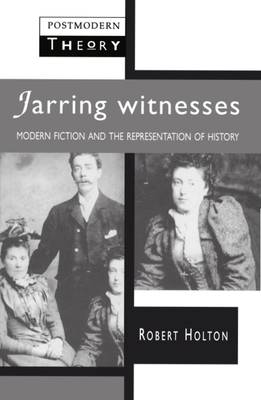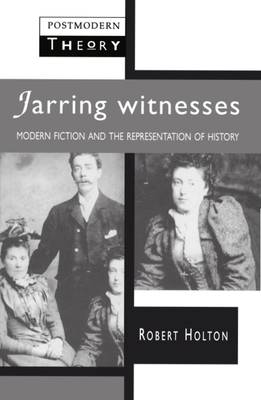
- Afhalen na 1 uur in een winkel met voorraad
- Gratis thuislevering in België vanaf € 30
- Ruim aanbod met 7 miljoen producten
- Afhalen na 1 uur in een winkel met voorraad
- Gratis thuislevering in België vanaf € 30
- Ruim aanbod met 7 miljoen producten
Zoeken
€ 50,45
+ 100 punten
Omschrijving
Jarring Witnesses begins by surveying the problem of point of view as a formal, cognitive and cultural determinant in narrative historiography, particularly in the way certain dominant forms of 'legitimate' history have necessitated the suppresson of the voices of 'jarring witnesses'. The theory is explored in relation to Pierre Bourdieu's theories of doxa and heterodoxy, Bakhtin's concept of heteroglossia, and postmodernism. With this theoretical framework established, a number of modern novels concerned with history are then explored. Chapters devoted to Conrad's Nostromo, Ford's Parade's End, and Faulkner's Absolom, Absolom! examine the ultimate orthodox historiographical points of view in these novels, while a chapter on the fiction of African-American women engages the problem of historiography from the margins of the dominant culture. In the final chapter, Pynchon's V is the focus of a discussion of postmodernism and historical discourse. This is an original, interdisciplinary work which engages issues of contemporaray academic debate and illustrates its arguments with examples from well-known texts. The book is relevant to current debates in the problems of narrative representation both in fiction and the writing of history, while addressing questions being raised in literary studies concerning the representation of cultural difference and the varieties of social and discursive power.
Specificaties
Betrokkenen
- Auteur(s):
- Uitgeverij:
Inhoud
- Aantal bladzijden:
- 304
- Taal:
- Engels
- Reeks:
Eigenschappen
- Productcode (EAN):
- 9780745012834
- Verschijningsdatum:
- 1/03/1996
- Uitvoering:
- Paperback
- Formaat:
- Trade paperback (VS)
- Afmetingen:
- 138 mm x 216 mm
- Gewicht:
- 353 g

Alleen bij Standaard Boekhandel
+ 100 punten op je klantenkaart van Standaard Boekhandel
Beoordelingen
We publiceren alleen reviews die voldoen aan de voorwaarden voor reviews. Bekijk onze voorwaarden voor reviews.







